The Baseline Moves with You
TL;DR: Reflecting on your entire journey will help you see your progress more accurately.
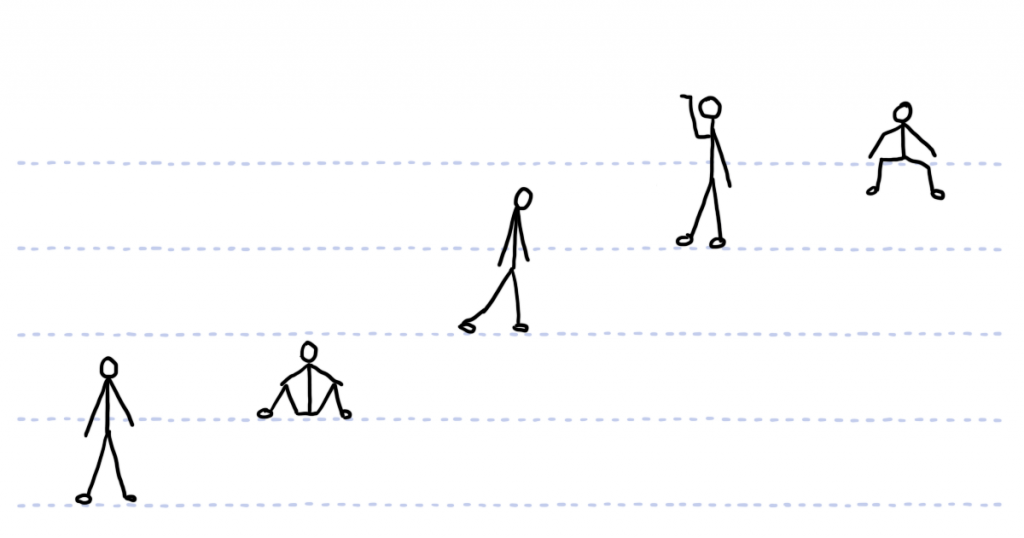
You aren’t making progress. Every day is like the one before. You are standing still, while others are winning. It’s all too hard. You weren’t meant for this. You ask: “Is it time to accept it was never meant to be, and just give up?”
You’re shortsighted
I often think about notions of progress and success. I do this because these ideas are so powerful. Additionally, perception is ever-changing—and skewed. These statements might seem esoteric. They aren’t. Perception is everything. When your perceptions are ill-informed, they can be destructive.
Take my kid’s math problem, the other day. He gets upset because his answer is wrong. Then, he determines that he “sucks”, and will “never get it”. I ask him to pause, and we reflect on the situation. His score is 96 out of 100 (totally not a failing grade). We then look at the question, together. It only takes a few seconds for him to spot his mistake and fix it.
This example might seem simplistic. And I realize that he is a tad melodramatic (kids, right?). This doesn’t make it any less common with adults, though. We measure individual obstacles as bigger than they are. We also view them out-of-context.
What comes after?
I’ve noticed that successful people aren’t as prone to distortions as less successful people are. They understand that most obstacles can be overcome. This doesn’t make the obstacle easy to overcome. It does make it manageable, though.
To clarify: It’s not that successful people are free of struggle. It’s that they seem to see obstacles as challenges they can overcome—instead of showstoppers or dead-ends.
Part of this relates to how you view the other side of an obstacle. Many distort this as well. They think that if they can overcome this obstacle, all will be dandy. (E.g.: “If I get the job I applied for, everything will fall into place.” Or, “If we get funded, our company will succeed.” Or, “If I lose 10 pounds, I’ll be healthy.”)
In actuality, most obstacles are smaller than they seem. Also, the other side of an obstacle isn’t trouble-free. This is because an obstacle is only a hurdle. Once passed another will surface… and another… and another…
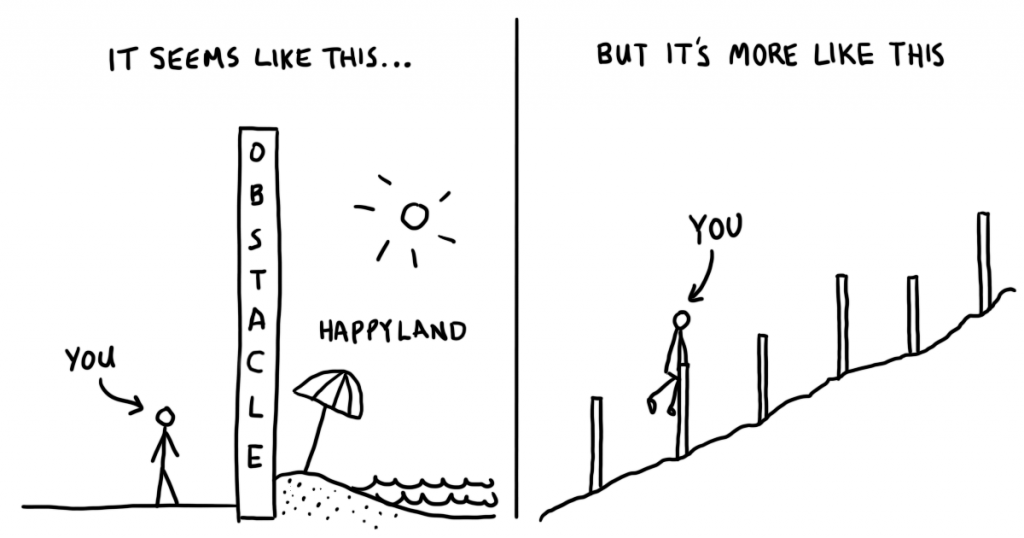
You’ve got it backwards
You think you hate obstacles and desire success. In actuality, you’re obsessed with obstacles—and only superficially interested in success. My kid is, too. After he overcame that math problem, he hardly paid it another thought. He didn’t bask in his victory or even give me a high-five. His attention moved to the next problem.
I waited a few minutes, before asking him to join me for a moment. He rolled his chair over, and I drew this for him:
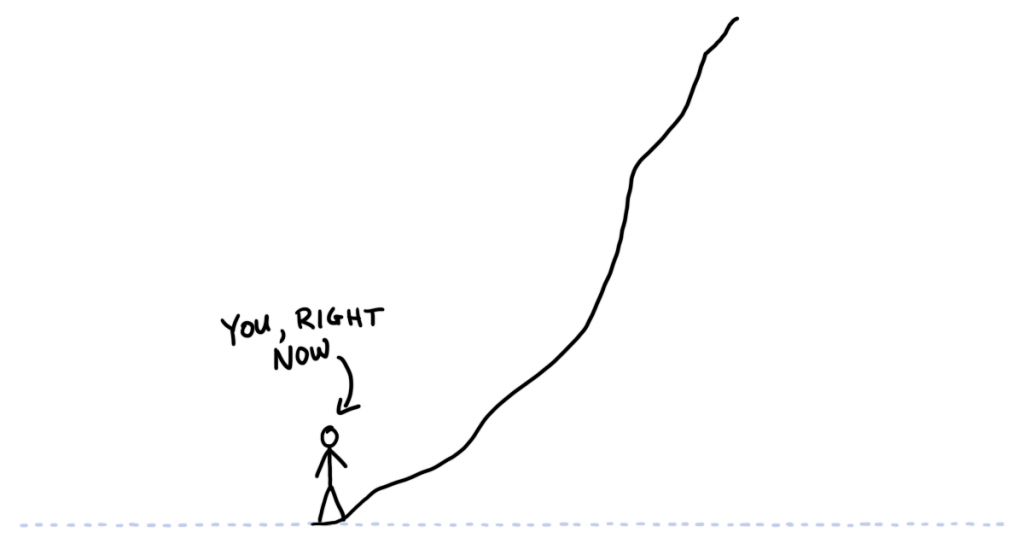
I explained that this his progress was like climbing a mountain. All he could see were the challenges to come. “But—” I noted, “you aren’t starting from zero.” I then added to the drawing:
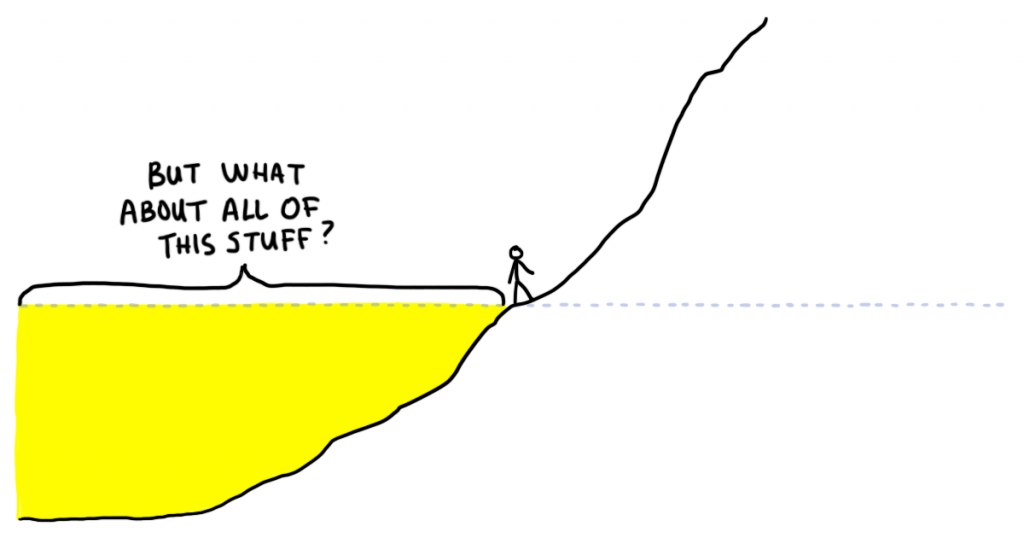
“You forget how long you’ve been at this. Everything you’ve learned up until now got you here.” I continued. “Along the way, there were many obstacles. If you had quit then, you’d never gotten to where you are.”
I then extended the drawing even further:
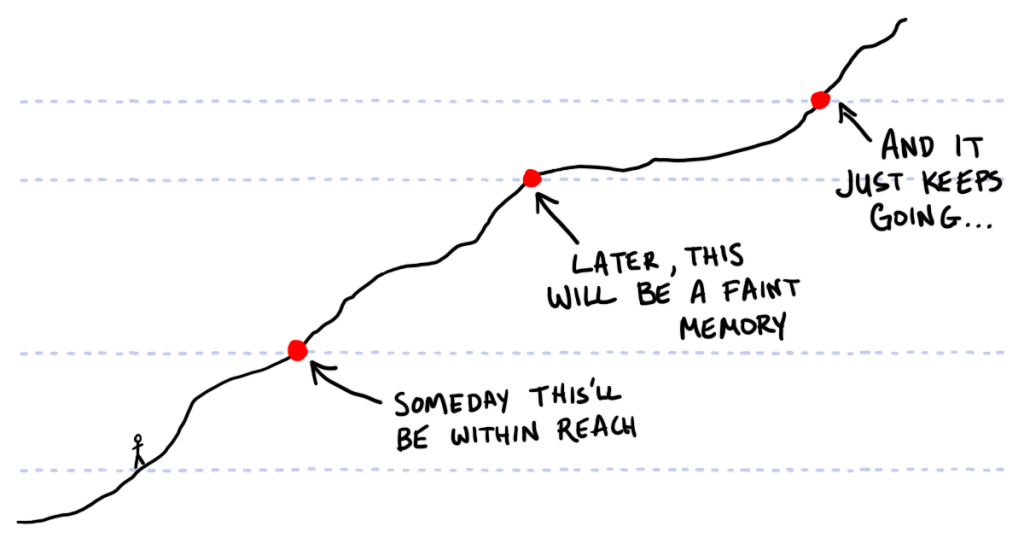
“And if you keep going, you’ll find yourself here… and here… and here.” I said, while dotting the line at different peaks. “It never ends, and you’re never finished—unless you quit.”
With that, I stopped talking and let him return to his online math game.
—
Success never feels like success. This is because success is not a state of being. To make progress, you must see your obstacles for what they are—and lean into them. You ought to pause every once in a while, and look back on how far you’ve come.
Homework
I sometimes feel like I’m not moving forward. At these times, I think back to other times and how I then defined success. This helps me see how far I’ve come. Years ago, I wanted to work with world-class clients. Earlier, I dreamt of running my own design studio. Even further back, earning a living through creative work seemed like a pipe-dream.
So, open a text document, and create headings for three dates in the past (let’s say: 20 years ago; 10 years ago; 5 years ago). Note what felt difficult or impossible then—that you’ve since achieved. We downplay our achievements and idealize our goals. Traveling back in time (on paper) puts your progress in perspective.
I’m @karj and the above is just my opinion. Looking for more? Here’s a full list of articles and information on my books. This is what I’m doing now, and what I don’t do. I’d love it if you tried Emetti on your website!